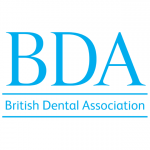The British Dental Association has warned that obscene levels of sugar in popular baby food pouches underline the need for wide-ranging government action across the early years’ food and drink sector.
Despite widespread claims of ‘no added sugar’ in these products, dentists have stressed that as far as teeth are concerned there’s little to no difference if the sugar is added or naturally occurring.
Market analysis by the British Dental Association of 109 pouches aimed at children aged under 12 months indicates:
- Over a quarter contained more sugar by volume than Coca Cola, with parents of infants as young as 4 months marketed pouches that contain the equivalent of up to 150% the sugar levels of the soft drink. Those pouches are without exception fruit-based mixes.
- ‘Boutique’ brands appear to have higher levels of sugar than traditional baby food brands or own brand alternatives, with market leaders Ella’s Kitchen and Annabel Karmel coming in for criticism. While high levels of ‘natural’ sugar have been described by manufacturers as inevitable with fruit-based pouches, some brands offer products based on similar ingredients that contain around half the levels of sugar of the worst offenders.
- Some products examined aimed at 4 months+ contain up to two thirds of an adult’s recommended daily allowance (RDA) of sugar. Neither the World Health Organisation (WHO) nor the UK Government’s Scientific Advisory Committee on Nutrition (SACN) cite an RDA for children, simply stressing that as little should be consumed as possible.
- Both UK and WHO guidance recommends weaning from 6-months-old, so no products should be allowed to be marketed as ‘4months plus’. Nearly 40% of products examined were marketed at this age group.
- The sector has consistently adopted disingenuous language highlighting the presence of only “naturally occurring sugars” or the absence of “added sugars”, with others making opaque claims of products being “nutritionally approved” or in line with infants’ “nutritional and developmental needs”. All high sugar products adopt ‘halo labelling’ principles, focusing on status as ‘organic’, ‘high in fibre’ or ‘containing 1 of your 5 a day’, misleading parents into thinking they are making healthy choices.
- Over two thirds of the products examined exceeded the 5g of sugar per 100ml threshold set for the sugar levy applied to drinks. Dentists stress expansion of fiscal measures would likely have favourable outcomes in terms of encouraging reformulation.
These pouches have surged in popularity among parents, owing to their convenience. Beyond encouraging a preference for sweet tastes – which carries lifelong health risks – the BDA warns they also carry oral health risks when compared to foods available via jars. Contents are often sucked directly from the pouch, ensuring the food spends more time in contact with baby teeth, just as they are erupting, and putting teeth at risk of erosion and decay
Tooth decay is the number one reason for hospital admissions among young children, and the SACN has warned infant feeding practices and delayed or poor dental hygiene may be associated with decay prevalence and have recommended a preventive focus on both areas. Public Heath England (now the Office for Health Improvement and Disparities) national guidance states that from 6 months of age, infants should be introduced to drinking from a free-flow cup or beaker, and from the age of 12 months they should be discouraged from drinking from a bottle. Open-topped cups or cups with spouts that are free-running rather than valved are recommended so that there is no need to ‘suck’.
The BDA has lamented the lack of clear messages from manufacturers not to consume products straight from the pouch in both packaging and their wider marketing collateral, with Annabel Karmel products explicitly stating “eat straight from the pouch.”
The Department of Health and Social Care is expected to consult imminently on the marketing and labelling of infant foods. Dentist leaders say the excessive levels of sugar in many of these products clearly warrants government action across the sector, including confronting the tactics used by sales teams, implementation of a clearer ‘traffic light’ style for labelling, and potentially expansion of fiscal measures such as the Sugar Levy to encourage reformulation.
Oral health inequality is now set to widen as a result of the pandemic, owing to ongoing disruption to routine care, the suspension of public health programmes, and the impact of sugar-rich ‘lockdown diets’.
Analysis in 2021 by Action on Sugar that showed among 73 baby and toddler sweet snacks such as rusks, biscuits, oat bars and puffs, only 6 products (8%) would get a green (low) label for sugars.
British Dental Association Chair Eddie Crouch said: “Disingenuous marketeers are giving parents the impression they are making a healthy choice with these pouches. Nothing could be further from the truth. Claims of ‘no added sugar’ are meaningless when mums and dads end up delivering the lion’s share of a can of Coke to their infants. Tooth decay is the number one reason for hospital admissions among young children, and sugar is driving this epidemic. These products sadly risk hooking the next generation before they can even walk. Ministers need to break the UK’s addiction. They must ensure sugar becomes the new tobacco, especially when it comes to our youngest patients.”
Methodology:
Market analysis of brands undertaken May-June 2022, examining 109 products marketed at infants under 12 months, covering both sweet and savoury. Full data here: https://www.bda.org/advice/Documents/Infant-pouch-market-scan-table-June-2022.pdf
The worst offenders
*Ella’s Kitchen and Annabel Karmel fruit pouches dominate the top reaches of the market, in terms of the highest sugar levels per 100g. Other brands captured represent outriders from boutique, traditional mass-market baby food manufacturers and own-brand lines.













